News & Commentary
Jun 22, 2021
Civil Rights took Center Stage During the 2021 Legislative Session. Here’s What Happened and What’s Next in the Fight.
After the 2020 legislative session was largely derailed by COVID-19, and following the unprecedented summer protests in the wake of the killings of Breonna Taylor and George Floyd, Louisiana’s 2021 legislative session sought to deliver on many deferred promises. Against that backdrop, the session was marked by reactionary racial resentment, attacks on transgender youth, and fierce battles over police accountability and mass incarceration.The result was a mixed bag for civil rights and civil liberties. We made important gains in some areas, suffered hard-fought losses in others, and defeated many of the worst threats to civil liberties and equal protection under the law.Perhaps most importantly, we saw the community come together time and again to hold our state accountable. The ACLU of Louisiana came away from the session invigorated to keep fighting and keep the pressure on wherever your rights are at stake.Here are some of the issues that were most important to us, including some crucial ones that may not have made the news:Criminal Law ReformPretrial IncarcerationThe ACLU of Louisiana’s priority bill, HB 46 by Rep. Ted James, sought to reduce the length of time that the state can jail a person without criminal charge from as long as 120 days to 5 days in most cases. Our research found that Louisiana has the highest pretrial incarceration rate in the country, and research by the Pew Charitable Trusts has shown that this crisis has been driven by longer lengths of stay, not necessarily more people being put in jail. By allowing people to be jailed for prolonged periods without charge, Louisiana state law contributes to our state’s outlier status.With the help of an outpouring of support from the community and ACLU of Louisiana supporters, HB 46 passed into law, but not before legislators bowed to pressure from district attorneys and amended the bill. Under the new law, people arrested for misdemeanors may only be held in jail for 30 days without charge, rather than 45 days under previous law.We are clear-eyed about the incremental step this represents. People in this state can still be held in jail for weeks or months without being charged with a crime. Nevertheless, many legislators now understand and agree with us that the status quo is unjust and affront to due process. Moving forward, we will continue to sound the alarm about the injustice of pretrial incarceration and press lawmakers to address this crisis once and for all. Decriminalization of MarijuanaOne of the bright spots of the session was the long-overdue attention given to marijuana legalization. Racial disparities in marijuana enforcement are staggering, and statistics show Louisiana residents favor legalizing marijuana. Although marijuana legalization failed to pass, legislators did take a small step forward with the passage of HB 652 by Rep. Cedric Glover. Under this new law, possession of up to a half ounce of marijuana will be a misdemeanor carrying a fine of up to $100, rather than $300, with no possibility of jail time.Unfortunately, legislators declined to pass HB 524 by Rep. Nelson and HB 243 by Rep. Candace Newell, which both attempted to decriminalize marijuana. HB 243 further attempted to provide redress for those convicted of possession of marijuana. All of these measures failed, but the fight is still on.The war on drugs has been devastating to communities, while wasting taxpayer money and failing to improve public safety. The ACLU of Louisiana will continue to press for full legalization of marijuana and an end to the war on drugs. Mass IncarcerationAlthough we were hopeful that the Justice Reinvestment Legislation of 2017 would decrease incarceration numbers, Louisiana still has the highest incarceration rates in the nation and in the world. Louisiana’s harsh sentences have a disproportionate impact on Black communities, with Black people accounting for 73 percent of all people serving life sentences in the state of Louisiana. Throughout the session, the ACLU of Louisiana supported our coalition partners in pressing lawmakers to continue reducing Louisiana’s sky-high prison population, and oppose harmful “tough on crime” policies that would turn back the clock and make Louisiana’s mass incarceration crisis worse.For example, HB 479 attempted to implement a harmful “truth in sentencing” law in Louisiana, which would have required individuals in prison to serve out their full sentences without any credits for good time served. Thanks to collaborative efforts and strong opposition from the ACLU and our allies, HB 479 was deferred in the House and did not become law.Another positive development was the passage of HB 32, which allows incarcerated individuals to earn credits upon earning Bachelors and/or Masters degree while in prison.While the reforms passed in 2017 remain intact, this session legislators generally declined to take further meaningful steps toward reducing mass incarceration. Despite a public outcry calling for an end to solitary confinement, legislators refused to pass HB 68, which would have placed restrictions on solitary confinement for people with mental disabilities. Lawmakers also failed to provide people serving sentences due to non-unanimous jury convictions with a chance at justice and fair trials. Despite Louisianans overwhelmingly voting for the passage of Act 2, which outlawed non-unanimous juries, approximately 1,500 individuals convicted by split juries are still serving sentences due to this racist and unjust practice. Post Conviction ReliefWhile legislators largely punted making real progress to reform our criminal legal system, they did take small strides for people who are released after being wrongfully convicted and other formerly incarcerated Louisianans:
By Chris Kaiser, Stephanie L. Willis
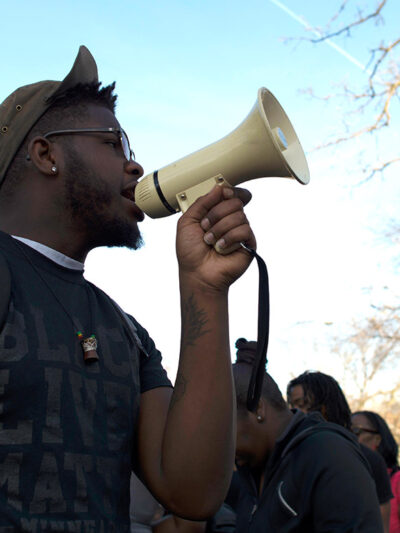
Jun 10, 2021
11 lawsuits in 10 weeks. Here's how we're putting racist policing on trial
An update on our Justice Lab initiative to put racist policing on trial
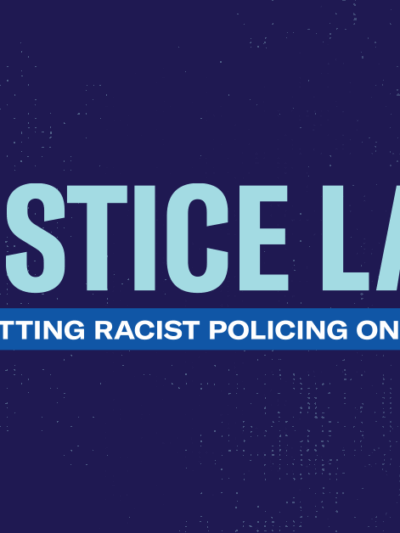
May 20, 2021
Pretrial Incarceration Can Be Deadly. It’s Time for Reform.
We can never bring back the lives lost to this crisis or restore the precious time it has taken, but lawmakers do have the power to prevent these tragedies in the future and restore the promise of “innocent until proven guilty.” They must use it.
By Alanah Odoms
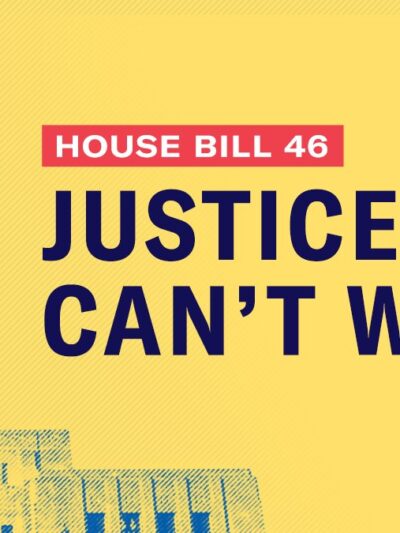
Mar 26, 2021
What Happened to "Innocent Until Proven Guilty"? House Bill 46 Would Take a First Step Toward Ending Louisiana’s Pretrial Incarceration Crisis
Right now if you are arrested in Louisiana, you can sit in jail for months before a prosecutor even looks at evidence, speaks to witnesses, or reviews police reports. You can legally spend weeks away from work and family while waiting for the state to consider whether you should be charged with a crime at all. This is all long before any trial and most people don’t have a lawyer during this time. Usually, there’s not even a hearing where you can talk to a judge. The timeline during this period is controlled entirely by the district attorney.
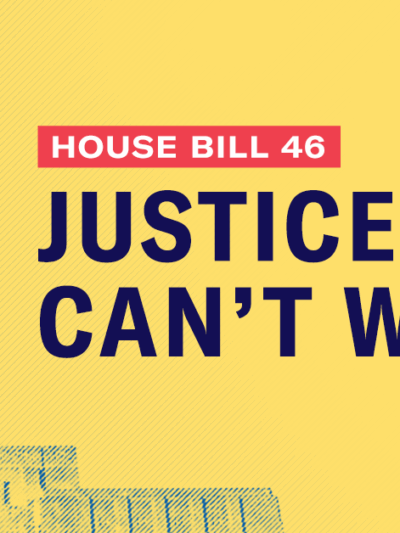
Feb 18, 2021
Oppression and Resistance: Black History Month in the Era of Reckoning
During Black History Month the ACLU of Louisiana is celebrating and lifting up the contributions and resilience of the Black Louisianans of every generation who have demanded justice, confronted white supremacy, and fought to create a more perfect union for everyone
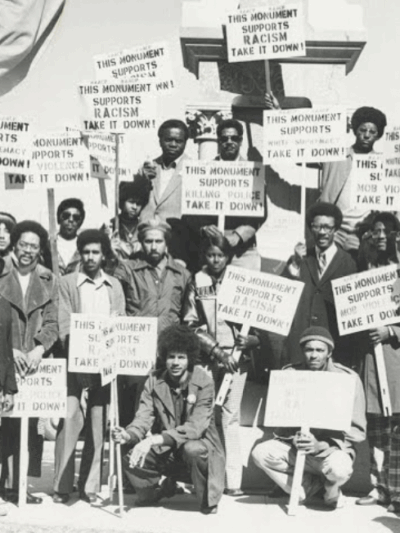
Feb 10, 2021
What the Black Panther Party Can Teach Us About the Fight for Racial Justice Today
When people around the world rose and demanded racial justice in 2020, they stood on the shoulders of generations of activists and organizers who had marched, fought, and died for the cause of Black lives.
By Alanah Odoms
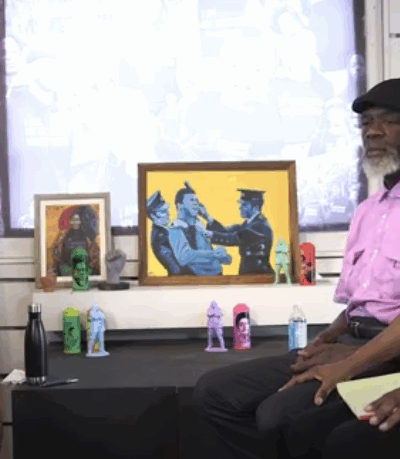
Feb 04, 2021
What the Lafayette Public Library Board Doesn't Want You to Hear
It is an undisputed fact that our country systematically denied Black people the right to vote for hundreds of years. Unfortunately, it's a fact that the Lafayette Library Board does not want its community to hear.

Stay Informed
Sign up to be the first to hear about how to take action.
By completing this form, I agree to receive occasional emails per the terms of the ACLU’s privacy statement.
By completing this form, I agree to receive occasional emails per the terms of the ACLU’s privacy statement.


